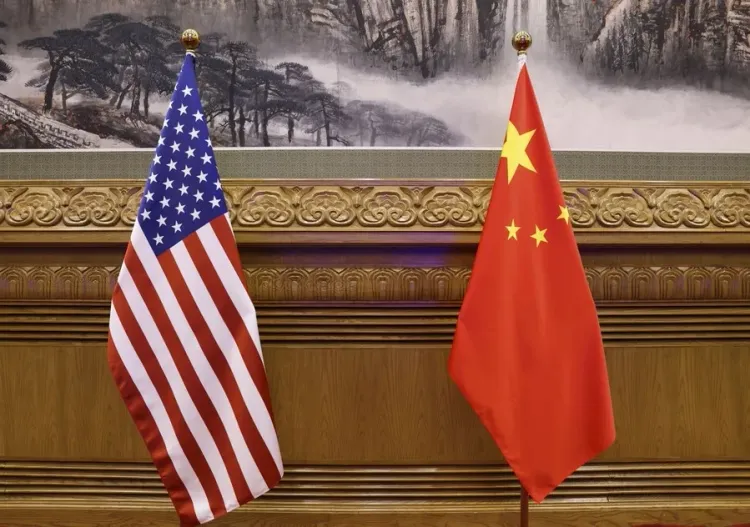China Declares US Tariff Increases Are No Longer Justifiable

Synopsis
Key Takeaways
- US's 245% tariff on China deemed economically unjustifiable.
- China halts Boeing jet deliveries in retaliation.
- Over 75 countries discussing new trade agreements.
- US and China trade conflict increases economic risks.
- Asia-Pacific governments seeking regional trade solutions.
Beijing, April 17 (NationPress) A spokesperson from the Chinese foreign ministry remarked on Thursday that the 245 percent tariff imposed by the United States on specific Chinese products has become economically unjustifiable.
The spokesperson, as reported by the Xinhua news agency, indicated that if the US persists in engaging in the “tariff numbers game”, it will choose to disregard it.
This statement follows the White House's announcement that China is now subjected to tariffs as high as 245 percent due to its retaliatory measures.
As per the White House Fact sheet, China currently faces tariffs of up to 245 percent on its imports into the US as a direct consequence of its retaliatory tariffs.
This development came after Beijing instructed its airlines to halt any further deliveries of Boeing jets in reaction to the earlier US decision to enforce 145 percent tariffs on Chinese goods.
The White House indicated that the US President is amenable to negotiating a trade agreement with China, but emphasized that Beijing must initiate the dialogue.
“Over 75 countries have already engaged in discussions regarding new trade agreements. Consequently, the individualized higher tariffs are currently on hold during these discussions, with the exception of China, which retaliated,” it stated.
Furthermore, the White House accused Beijing of imposing a ban on the export of gallium, germanium, antimony, and other critical high-tech materials that could have military applications.
A report released this week by S&P Global Ratings highlighted that there are no victors in a trade dispute and warned that the ongoing conflict between China and the US heightens the risk of both economic and geopolitical repercussions.
The Asia-Pacific region, characterized by substantial manufacturing operations, relies heavily on exports to the US and China for its growth. Simultaneously, it depends on the US primarily for its security.
The report noted that this region might be compelled to take sides or maintain a precarious balance between the two major economies.
In response to tariffs, governments in the Asia-Pacific are investigating the establishment of regional trade blocs or bilateral trade agreements. Such initiatives could potentially accelerate the need to relocate supply sources and production.
China's economic growth is facing increased downside risks amidst escalating trade tensions with the US, as its export sector weakens due to diminished global demand. The domestic growth engine remains tepid, primarily due to the ongoing real estate crisis, which is eroding confidence.










